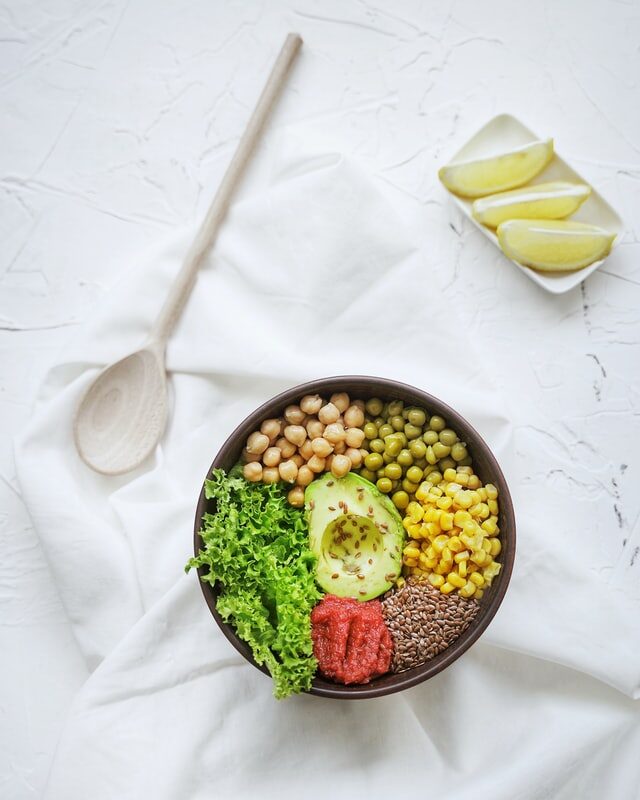Do you find yourself reaching for a bar of chocolate when you’re done with a particularly stressful day? It turns out, it might not be the worst pick. “Not only is raw cacao comprised of substances great for our memory, cognition, and inflammation it’s full of tyrosine, L-phenylalanine and naturally occurring serotonin. So next time you go for a chocolate bar, aim for the darkest one you can find, add some fresh berries and a few nuts and you have yourself a mood boosting super snack,” says Renee Grandi, clinical nutritionist and naturopath, Chiva Som International Health Resort.
With everyone under social distancing and lockdown protocols, more people are stuck with the blues, with stress and anxiety levels only increasing. If you’re feeling upset or scared, food can feel like a major source of comfort. It’s time to get back to the basics, shares Grandi, “Do the simple things you know to be right. Eating wholesome food is a good start to keep your mind and body in balance.”
Here’s how certain foods can help you stay calm
The gut has a huge role to play in how we exhibit our emotions and if your gut is happy, you feel balanced. There are certain foods that can trigger stress while there are some that can help you stay calm.

“These foods include- chickpeas, lentils, milk, salmon, oatmeal, and beans. Foods high in Omega-3 fatty acids can ease inflammation caused by chronic stress and help boost brain health. These foods include- walnuts, chia seeds, fatty fish, and sunflower seeds,” explains Nmami Agarwal, Delhi-based celebrity nutritionist. Vitamin C-rich foods help boost the immune system while also reducing the impact of the stress hormone known as cortisol. On the other hand, if you are feeling restless, reach out for foods that are high in flavonoids, such as dark chocolate, citrusy fruits apples, soy products, and legumes, to ease unwanted symptoms of stress.
Vitamin C rich foods help boost the immune system while also reducing the impact of the stress hormone known as cortisol. These foods include- citrus fruits, lemon, broccoli, bell peppers, and strawberries. If you are feeling restless, reach out for foods that are high in flavonoids, such as dark chocolate, citrusy fruits apples, soy products, and legumes to ease unwanted symptoms of stress. Even magnesium, which is a muscle relaxant, is key, and usually needs to be added to your diet through food or supplements.
Dopamine plays a critical role in healthy brain biochemistry and Grandi shares how we can increase dopamine through food. “It is essential to have adequate protein and amino acids to efficiently make dopamine. This handy little neurotransmitter is comprised of three main components: tyrosine, L-phenylalanine, and vitamin-B6.” This means if your protein levels are low, you cannot obtain sufficient quantities of vital amino acids resulting in dopamine depletion, which in turn makes you feel low and lethargic.
Eating proteins is not enough—ensuring that the protein is adequately absorbed is critical. Grandi explains, “Your stomach must be acidic to start breaking your proteins down. You can boost your stomach acidity by adding bitter foods/drinks into your daily diet,” she says. “Your neurons are coated with fat (myelination), which is how your brain conducts electrical pulses and communicates to the rest of your body. Omega-3 EFAs support cognition, inflammation, skin, cellular health and cardiovascular health. If you aren’t eating healthy fats like avocado, cold-pressed oils, wild-caught fish, nuts, and seeds—it’s time to increase their consumption,” adds Grandi.
A strong advocate of you are what you eat, Grandi, helps decode the connection between the gut and the brain. “Vitamin B-6 is required for the enzymatic reactions for dopamine synthesis. Naturally occurring B-6 is called pyridoxine and it’s found in in animal products as well as avocado, nuts, sunflower/sesame seeds, wholegrains, oats, lentils and legumes.” Similarly, Omega-3 EFA’s are absolutely vital to a healthy nervous system. “Your neurons are coated with fat (myelination), which is how your brain conducts electrical pulses and communicates to the rest of your body. Omega-3 EFAs support cognition, inflammation, skin, cellular health and cardiovascular health. If you aren’t eating healthy fats e.g. avocado, cold-pressed oils, wild-caught fish, nuts, and seeds – it’s time to increase their consumption,” adds Grandi.
Feel-good foods you can add to your daily diet

Dark Chocolate
Wonder why chocolate makes you feel good instantly? It’s the flavonoids and serotonin present in dark chocolate that serves as an instant mood enhancer creating a feeling of pleasure. However, make sure your dark chocolate contains at least 70% of cocoa.
Spinach
This healthy leafy green consists of a plethora of nutrients including phenylethylamine- which is a brain-stimulating organic compound. It triggers the release of dopamine which is further associated with the feeling of happiness and mood regulation.

Eggs
“Eggs contain tryptophan that is responsible for the release of dopamine while making you all happy and healthy, inside and out. Eggs are also packed with brain-boosting choline that aids in enhancing cognitive health memory,” says Agarwal.
Bananas
This versatile fruit is packed with brain-boosting tryptophan which is known to trigger the release of the feel-good neurotransmitter serotonin. “Since bananas also have fibre, it works as a beautiful prebiotic to improve gut bacteria and boost the positive effects through the gut-brain axis,” says nutritionist Raksha Lulla.
Nutmeg
Research proves that nutmeg is a mood-booster due to the myristicin compound. “Half a teaspoon of nutmeg is just enough to make you feel more centred. It’s a brain tonic and has sedative and anti-anxiety effects,” explains Lulla.
Milk
Dairy products, if you can digest them well (and this is the caveat if you can digest them well), are rich in tryptophan, which relaxes the muscles and promotes feelings of calm, which explains why it is an ideal pre-bedtime drink.
Chamomile tea

If stress is leaving you tossing and turning, a cup of chamomile tea might be just what the doctor ordered. “Having a cup of chamomile tea right before bedtime is known to induce sleep and trigger a sense of calmness. It is because of the presence of an antioxidant called apigenin that decreases anxiety and exerts a mild tranquillising effect,” adds Agarwal.






